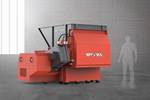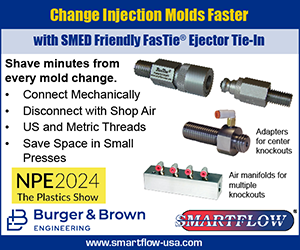Connecticut Campaign Increases Recycling of Plastic Film Packaging
In its next phase, Connecticut’s WRAP campaign will encourage people, companies and local governments to help increase demand for products made with recycled film packaging.
A 2017 consumer awareness campaign in Connecticut led to an increase in the quantity and quality of recycled plastic film packaging, such as bags and wraps, in the greater Hartford, Conn., area, according to a new report.
Connecticut began its Wrap Recycling Action Program (WRAP) in early 2017 as a partnership between its Department of Energy and Environmental Protection (DEEP), the Connecticut Food Association, grocery stores, plastics makers and other recycling advocates. Through various communications efforts, including advertising and media coverage, the campaign encouraged consumers to recycle plastic film packaging at retail stores and to keep it out of curbside recycling bins.
Connecticut’s program built on best practices and lessons learned in previous WRAP campaigns. These are designed to leverage the existing recycling infrastructure for plastic film packaging, which includes more than 20,000 drop-off locations across the country, predominately at major grocery and retail stores.
Connecticut’s campaign focused on the greater Hartford area. Following months of outreach, audits of material collected at retail stores found:
- an 11 percent increase in the amount of plastic bags collected;
- a seven percent increase in the amount of “other film” collected; and
- a 23 percent decrease in non-film packaging “contamination.”
A post-campaign survey of adults in the greater Hartford area found:
- a nine percent increase in respondents who heard to recycle flexible plastics at grocery stores (63 percent versus 54 percent);
- significant increases in those who said they knew which items to take back to stores (e.g., plastic bags: 15 percentage points increase, plastic bread bags: 17 points, plastic newspaper bags: 13 points); and
- a 10 percent increase in those who said they take plastic film packaging back to stores either “most of the time” or “always/all of the time” (40 percent versus 30 percent).
In its next phase, Connecticut’s WRAP campaign will encourage people, companies, and local governments to help increase demand for products made with recycled film packaging. “If we aren’t buying recycled, then we’re not really recycling,” noted Baldwin.
“Like WRAP campaigns conducted in other areas, Connecticut demonstrated that a dedicated team of recycling advocates can make a difference,” said Shari Jackson of the Flexible Film Recycling Group, part of the American Chemistry Council, which helped fund the campaign. “We look forward to continuing to support Connecticut and DEEP in elevating the importance of increasing demand for products made with recycled film.”
Related Content
-
Foam-Core Multilayer Blow Molding: How It’s Done
Learn here how to take advantage of new lightweighting and recycle utilization opportunities in consumer packaging, thanks to a collaboration of leaders in microcellular foaming and multilayer head design.
-
Recycled Material Prices Show Stability Heading into 2023
After summer's steep drop, most prices leveled off in the second half.
-
‘Monomaterial’ Trend in Packaging and Beyond Will Only Thrive
In terms of sustainability measures, monomaterial structures are already making good headway and will evolve even further.















